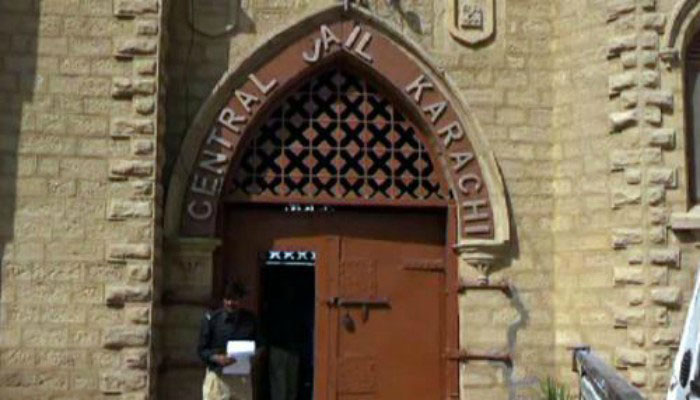Government hospitals a refuge for powerful prisoners
There are over 3,000 prisoners in Karachi’s Central Jail with only a 50-bed hospital having less than primary facilities available to them
October 22, 2017

No one is above the law, however, unfortunately in Pakistan, the law is only for the poor, not for those with money and power.
It is common for politicians in the country, who when caught by the law seek shelter on the basis of medical issues at government hospitals; which highlights flaws in the country’s legal system.
Since the start of the operation in Karachi, several well-known politicians have sought shelter in government hospitals. A prime example is that of a well-known politician from the ruling party of Sindh, who stayed at the Jinnah Post Graduate Medical Center (JPMC). During his over 16-month stay, this politician was given a heavily guarded room which resembled the room of a five-star hotel. The politician was allowed to bring with him a luxury bed, fridge, air-conditioner and cable TV by the then administration of the hospital.
JPMC Executive Director Dr Seemin Jamali said the hospital had constituted a seven-member medical board to evaluate the case of this politician and after a medical check-up it was advised that he be admitted to the special ward.
Speaking on the basis of anonymity, an official from the National Institute of Cardio Vascular Diseases said they are under political pressure when conducting medical checks of such patients.
Professor Doctor Nadeem Rizvi, a renowned cardiologist at National Institute of Cardio Vascular Diseases, said: “Being a doctor it’s my prime responsibility to save the life of a patient whether he or she is a prisoner or a murderer. We obey the court of law”.
Senior lawyer and president of the Sindh High Court Bar Association, Shahab Sarki, breaks down the process of how a prisoner makes his way to a government hospital.
“A jail doctor can examine a prisoner and state that treatment is not possible. The doctor then approaches the honourable court to transfer the case on the basis of humanity to a government hospital.”
Sarki admits that there are some loopholes in the law which are exploited by government officials, politicians and even members of the bureaucracy.
There are over 3,000 prisoners in Karachi’s Central Jail with only a 50-bed hospital having less than primary facilities available to them. A retired doctor who had worked in Central Jail confirmed that not a single operation theatre is available where a doctor can perform even a minor surgery.
According to the doctor, this is one of the main reasons why over 90 per cent of prisoners are referred to Civil Hospital and Jinnah Post Graduate Medical Center.
Health experts are of the opinion that the government should enhance medical facilities inside the prison so legal loopholes are no longer exploited by powerful prisoners.











